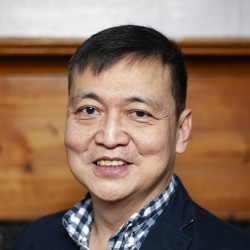Although the Philippines’ withdrawal from the International Criminal Court (ICC) took effect on March 17, the pursuit of justice and accountability for the thousands of extrajudicial killings in President Rodrigo Duterte’s so-called drug war can proceed. In February 2018, after warning Philippine officials that she was “deeply concerned about these alleged killings and the fact that public statements of high officials of the Republic of the Philippines seem to condone such killings,” ICC Prosecutor Fatou Bensouda opened a preliminary examination, as an initial step.
Under the Rome Statute, once a preliminary examination is opened, it is not affected by a state’s withdrawal from the ICC—a precedent set in a case involving Burundi, the first and only other country besides the Philippines to withdraw from the court. In that case, the prosecutor opened a preliminary examination of crimes against humanity, including the murder of around 1,200 persons, enforced disappearances, rape, and torture committed by government-controlled forces. Two days before Burundi’s withdrawal from the ICC on October 27, 2017, the ICC authorized the prosecutor to open an investigation, but kept the authorization sealed and confidential “in order to attenuate risks to the life and well-being of victims and potential witnesses.” This precedent is exactly what the prosecutor cited when she announced, the day after the Philippines’ withdrawal took effect, that her office’s “independent and impartial preliminary examination” will continue.
But even if efforts to obtain justice through the ICC are delayed, those who seek accountability can and should pursue it elsewhere.
In resisting accountability through the ICC, Duterte has claimed that courts in the Philippines are “able and willing” to investigate the extrajudicial killings. But it is clear that his claim is not true. Not only has the government continued to refuse to release data on the killings despite a Philippine Supreme Court order to do so, but, so far, only three low-ranking policemen have ever been charged and found guilty of murder in the killing of one 16-year old victim of the drug war. None of Duterte’s high-ranking police officials have been investigated for crimes against humanity, which is what the ICC inquiry could lead to. There is in fact a 2009 Philippine law that allows for domestic prosecutions of these violations. But not only has Duterte’s government not carried out a good-faith investigation of the killings, it has denied that they constitute human rights crimes, claiming that the victims “are not human.”
These pronouncements and the refusal to investigate the killings have compelled lawyers in the Philippines to pursue creative litigation strategies, such as a case focused broadly on the overall policy of waging the drug war itself. Outside of both international and domestic judicial remedies, non-judicial measures can be taken, including (1) a fact-finding international investigative mechanism similar to what has been created for war crimes committed in Syria and violations in Myanmar, (2) an invocation of universal jurisdiction in individual cases, (3) seeking reparations from and sanctions against officials (for example, Canada’s legislation that calls for the investigation of foreign perpetrators), and (4) applying the Global Magnitsky Act to gain control over officials through their travel and assets abroad.
PHOTO: Relatives of a suspected drug pusher weep after he was shot dead in a police operation in Manila, Philippines, on August 3, 2016. (Zeke Jacobs/Sipa via AP Images)

